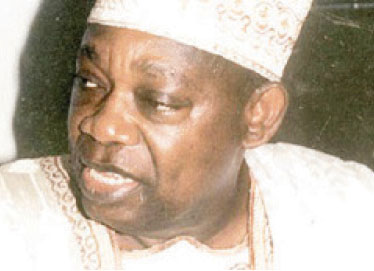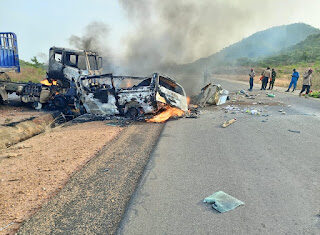Assistant Politics Editor, DANIEL KANU, looks at June 12, 1993, presidential election, 23 years after, and other issues in the quest for a restructured federation.
Today marks the 23rd anniversary of the controversial annulment of the June 12, 1993 election believed to be the freest and fairest election ever conducted in Nigeria.
On June 12, 1993, many Nigerians believed they were at the threshold of witnessing the completion of a political transition from military dictatorship to democratic governance, with the conclusion of the presidential election.
Even before the election was conducted, opinion polls had given victory to business mogul and philanthropist, Moshood Abiola, who ran on the platform of the defunct Social Democratic Party (SDP).
Abiola (South West), had Baba Gana Kingibe (North East), as running mate. His only rival, Bashir Tofa (North West) of the National Republican Convention (NRC), had Sylvester Ugoh (South East) as running mate.
Proving permutations right, results released showed that Abiola was clearly in the lead and on the verge of emerging victorious, having trashed Tofa in his polling booth in Kano.
But the final results did not see the light of day, as then Military President, General Ibrahim Babangida, made a shocking announcement that the election had been annulled.
Expectedly, Nigerians reacted with street protests, nationwide strikes and civil disobedience.
The resultant crisis eventually forced Babangida out of office on August 27, handing over to a short-lived Interim National Government (ING) led by Ernest Shonekan from Abiola’s South West, who was overthrown by General Sani Abacha on November 17, 1993.
Abacha later had Abiola jailed for claiming his mandate, resulting in the death of Abiola in detention on July 8, 1998.
The June 12 anniversary has become a yearly event mostly in the South West.
There have been calls from some quarters to make June 12 Democracy Day in Nigeria. But government has upheld May 29 – when the military, through General Abdulsalami Abubakar, eventually handed over power to a democratically-elected government – as the nation’s Democracy Day.
Till date, the plethora of crises that Nigeria is yet to come over still abound as the ideal of June 12 remains elusive or at best a fleeting illusion.
The Babangida agenda
Detailing the reasons for the annulment, Babangida, in a nationwide broadcast, said he was equally disappointed as most Nigerians were on the outcome of the election which he claimed was fraught with discrepancies.
He had noted that the election was annulled because it was afflicted by the problem of not meeting the basic requirements of free and fair election.
“Even before the presidential election, and indeed at the party conventions, we had full knowledge of the bad signals pertaining to the enormous breach of the rules and regulations of democratic elections. But because we were determined to keep faith with the deadline of August 27, 1993 for the return to civil rule, we overlooked the reported breaches.
“Unfortunately, these breaches continued into the presidential election of June 12, 1993, on an even greater proportion. There were allegations of irregularities and other acts of bad conduct levelled against the presidential candidates, but NEC went ahead and cleared them.
“There were proofs as well as documented evidence of widespread use of money during the party primaries as well as the presidential election. These were the same bad conduct for which the party presidential primaries of 1992 were cancelled.
“It must be acknowledged that the performance of the judiciary on this occasion was less than satisfactory. The judiciary has been the bastion of the hopes and liberties of our citizens. Therefore, when it became clear that the courts had become intimidated and subjected to the manipulation of the political process, and vested interests, then the entire political system was in clear dangers,” he said.
Has anything changed?
It is obvious that democracy and democratisation are primary values which Nigerians should cultivate, sustain and consolidate so as to enhance freedom, liberties and social development of the citizenry.
But 23 years after June 12, which provided the beacon on which even the present democratic election was erected, Nigerians are yet to enjoy good governance, analysts insist.
They argue strongly that, in real terms, the country is yet to attain global standards in democracy, though appreciable feats may have been recorded in areas of free speech and measured liberties.
Incidentally, many of the people that constituted the bulwark of opposition against military dictatorship are, today, part of government.
Riding on the wing of the then National Democratic Coalition (NADECO) which then gave the military the fight of its life, the arrowheads of the struggle had, at the onset of the current dispensation, emptied into Alliance for Democracy (AD), with the rest teaming up with the Peoples Democratic Party (PDP). The former All Peoples Party (APP) also had a sprinkle of activists, but in far less number than PDP or AD.
PDP took the shine off AD on account of its more national outlook, compared with the latter that concentrated more in the South West.
Over time, however, the AD, realising its limitations on account of playing regional politics, transformed to Action Congress (AC), Action Congress of Nigeria (ACN) before fusing with All Nigeria Peoples Party (ANPP), Congress for Progressive Change (CPC) and fragments of All Progressives Grand Alliance (APGA) to form All Progressives Congress (APC) – the ruling party at the centre.
The APC, which took over power last year, accomplished the feat on account of the dissatisfaction by Nigerians on the poor governance provided by the PDP in the 16 years it held power.
The result: PDP was voted out in the 2015 presidential election making way for the APC.
The journey so far
One year into the exercise, opinions are divided on the extent Nigerians have been positively affected with the leadership change. The argument by many is that going by the real definition of democracy, according to former American President, Abraham Lincoln, as “government of the people, by the people and for the people”, most Nigerians are still feeling alienated.
There have, for instance, been allegations of absence of level-playing ground in the leadership recruitment processes at all tiers of government.
The exercise, to critics, is yet to be instituted, as it is still an elite show, just as the culture of transparency is lacking. The rule of law is also observed in breach.
The result is that the huge political capital that greeted the present administration under President Muhammadu Buhari is on the verge of being withdrawn by the majority of Nigerians, including those who voted for the party due to dissatisfaction so far with PDP’s performance.
It took the President close to a year to pass the budget, owing to what most political watchers described as “needless rancour between the executive and the national assembly”.
APC has refused the Senate President Bukola Saraki to function because he is not the party’s preferred candidate. And this has continued to slow governance, while the masses bear the brunt.
So far, the cost of living has remained high, with hunger taking toll on Nigerians.
Donald Ubong, a lawyer, told TheNiche that the enthusiasm that greeted the Buhari-led government seems to have gradually died, owing to hardship being experienced by the masses.
He expressed shock that it was only on Thursday, June 9, that the government released its list of ambassadors for National Assembly confirmation.
“How can you run a government in a fledgling democracy like Nigeria without ambassadors? It’s a display of outright political insensitivity,” he stressed.
The government is equally accused of faltering on other grounds. On the security angle, for instance, although strong efforts are on by government to degrade the Boko Haram insurgency in the North, the group is still killing and maiming with their soft target approach.
As if the security threat of Boko Haram is not enough embarrassment to the nation, the militants in Niger Delta are striking oil targets with deadly efficiency and vowing to take Aso Rock by storm.
Many insist that the militants, particularly the Niger Delta Avengers, are yet to be given desired attention.
Although a committee has been given two weeks to arrest the menace in the region, security experts have faulted the approach, suggesting a more pragmatic and proactive approach than command tactics.
There is also the new face of terror from the herdsmen which government, in the opinion of critics, has not shown great determination to contain.
From the Agatu community of Benue State to Nassarawa, Plateau and Enugu communities, the killings and wanton destruction of property have been alarming.
On account of apparent government inaction on the murderous activities of the herdsmen, members of the largely South East-based Movement for the Actualisation of the Sovereign State of Biafra (MASSOB), Indigenous Peoples of Biafra (IPOB) and many other aggrieved ethnic militias from other regions seem to be strategising for self-determination.
On the economic side, the country seems to be passing through one of its worst periods as the mass of the people go through hardship.
Although Buhari has assured that things will get better, nothing seems to have changed in terms of succour and practical relief from government.
Way out
Analysts, who argue on how to bail the country out of its present quagmire, recommend restructuring as a strong option.
Restructuring, they say, will provide the needed fiscal federalism that, many believe, will ignite healthy competition for growth among the component parts of the country.
The implementation of the National Conference report of 2014, which former President Goodluck Jonathan commissioned, has also been suggested as a way out.
This is because all the knotty issues contending with the nation’s unity, political stability and economic growth were tackled and solutions proffered by the conference document which membership cuts across ethnic nationalities and professional groups
Former Vice President Atiku Abubakar recently harped on the need for urgent restructuring, if the country is to make any progress.
Even elder statesman and renowned constitutional lawyer, Prof Ben Nwabueze, has been among the long list of those advocating publicly for a new Nigeria. But the sincerity and political will to implement it has been lacking.
For Atiku, whose view incidentally corroborates with that of a large spectrum of Nigerians, restructuring and renewal of the federation will make it “less centralised, less suffocating and less dictatorial in the affairs of our country’s constituent units and localities”.
“Our current structure and the practices it has encouraged have been a major impediment to the economic and political development of our country,” Atiku added.
Last line
Despite all the noise about the nation’s elections, political analysts who spoke to TheNiche were agreed that certain basic prerequisites that constitute irreducible minimum for democracy are still absent.
Such essential factors, they contend, include, among others, free and fair elections, uninhibited voter preference in election, respect for electorate as unfettered final arbiter on elections, decorum and fairness on the part of the electoral umpire and absolute respect for the rule of law.













